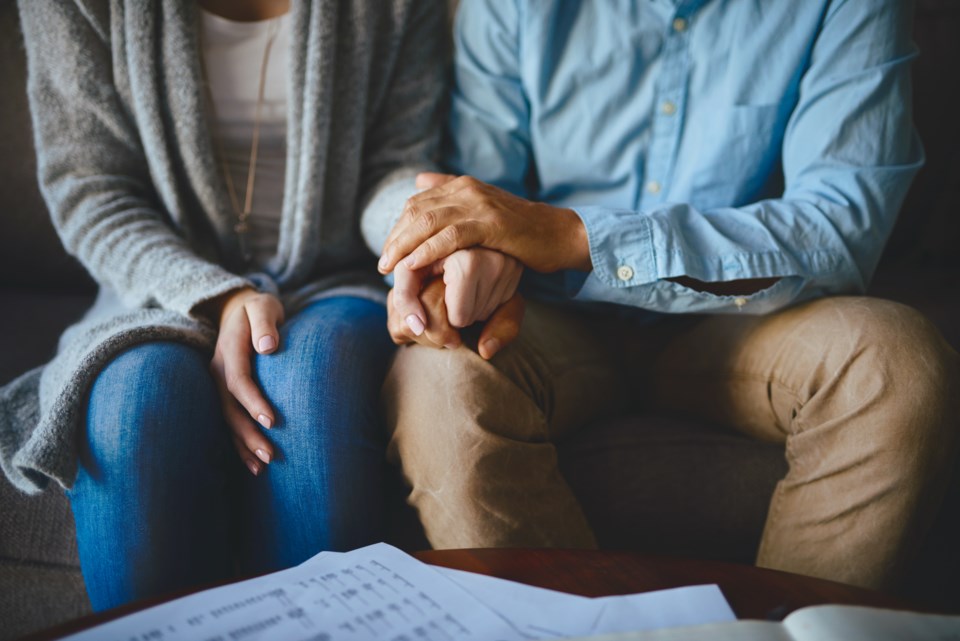The death of a loved one can leave people lost and sad, but a community funeral home is offering support groups to help residents with their grieving process.
W.J. Jones & Son Funeral Services at 474 Hochelaga Street West is holding several grief support groups throughout February to comfort residents dealing with loss.
An in-person hope/grief support group for all bereaved people occurs Wednesday, Feb. 8, at 7:30 p.m. at the funeral home’s reception centre.
An in-person support group for bereaved parents happens Wednesday, Feb. 15, from 7:30 to 9 p.m. in the reception centre.
An online grief group for survivors of suicide loss occurs on Wednesday, Feb. 22, from 7:30 to 9 p.m.
An online common ground for bereaved spouses group happens on Wednesdays throughout the month, including Feb. 8, 25 and 22, from 10 to 11:15 a.m.
Email Della Ferguson at [email protected] for the Zoom link.
The funeral home and crematorium has been holding these grief groups since 1998, while the gatherings have become part of the organization’s continual efforts to support people in a safe space, Ferguson explained.
“Grief isn’t just at the time of the funeral. We understand that grief is an ongoing process, and we want to support folks in their process and know that they don’t have to process it alone,” she said. “And we also know that it helps to understand what grief is and what strategies serve you well.”
There are four groups because each one has specific needs when dealing with death, she continued. It’s important for people having similar feelings to come together since it normalizes those experiences.
There are many commonalities to the strategies the funeral home offers these groups, with the primary strategy to encourage people to understand grief and open themselves to it instead of numbing themselves to the grieving process.
“Self-care is a very important one. Grief takes so much of your energy and adjusting to the new realities,” said Ferguson. “So, self-care is paramount, and it means simplifying life and honouring what you need for your body and mind and spirit.”
There is no specific length of time that people are supposed to grieve and then move on, Ferguson noted. Everyone’s grief journey is different, while people’s personalities, coping strategies, support systems, history of loss and relationship with the person all play a role in the length of mourning.
The research shows that the first year after a loved one’s death can be the most difficult because people experience many “firsts” without that family member or relative, she said. This forces people to battle fresh waves of grief and feel a sense of shock, numbness and lack of energy.
Some “firsts” people might experience after a loss include a birthday, a holiday, driving past the hospital where the death occurred or a site where an accident occurred, walking through a grocery store aisle, or other small things.
“And it is about adjusting to new realities. And so for some … it takes time to make life-altering adjustments (after) living without someone who has been so profoundly a part of your life,” said Ferguson.
One of the best ways to support people grieving is just to listen, she noted. Being fully present and offering a dedicated, trusting, non-judgmental ear goes a long way to helping others.
“Our real goal is to help them find their answers, not to tell them what they should or shouldn’t do,” Ferguson added. “… We don’t want to put guilt trips on people.”




